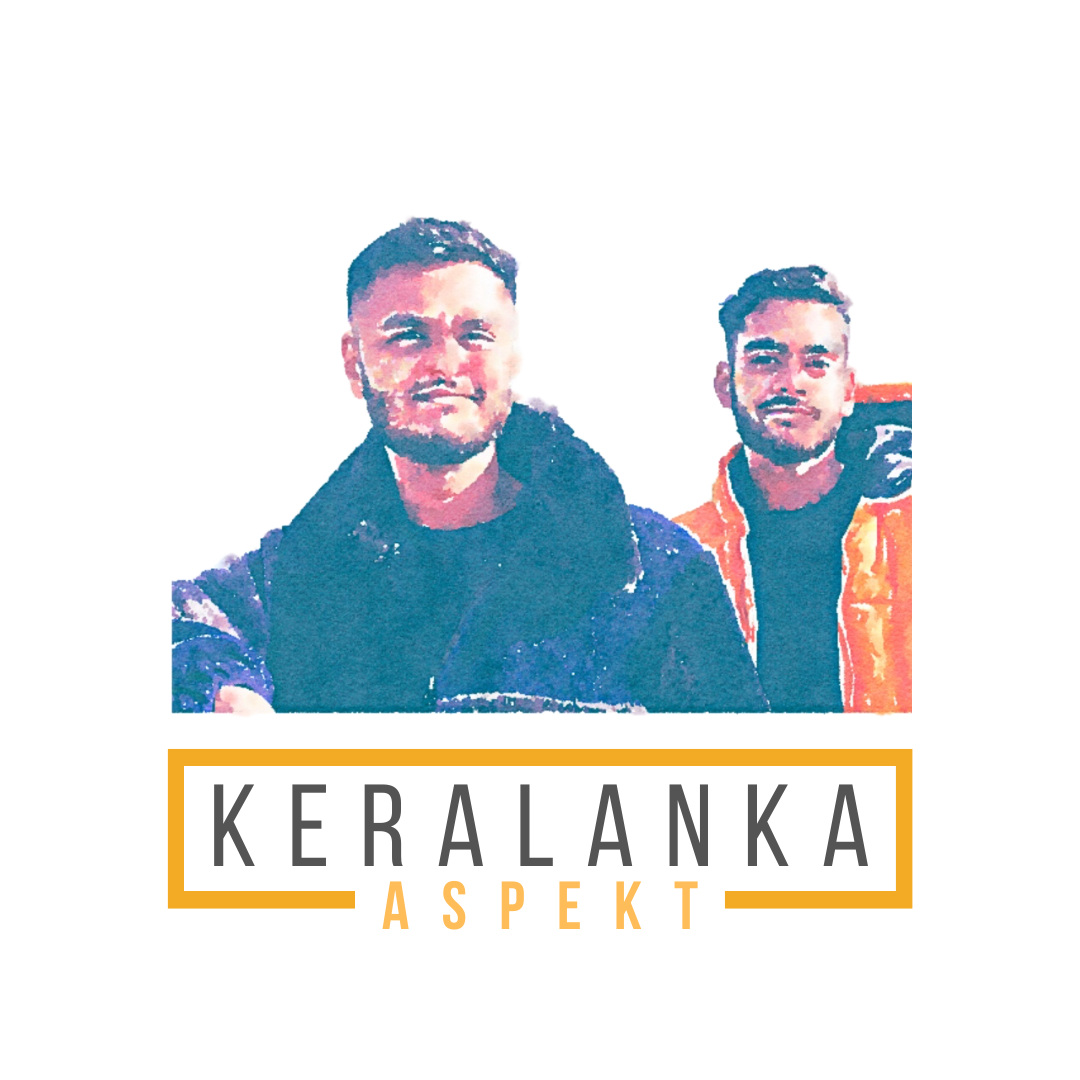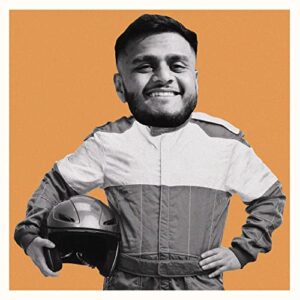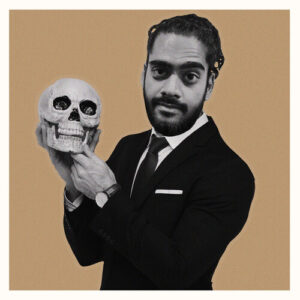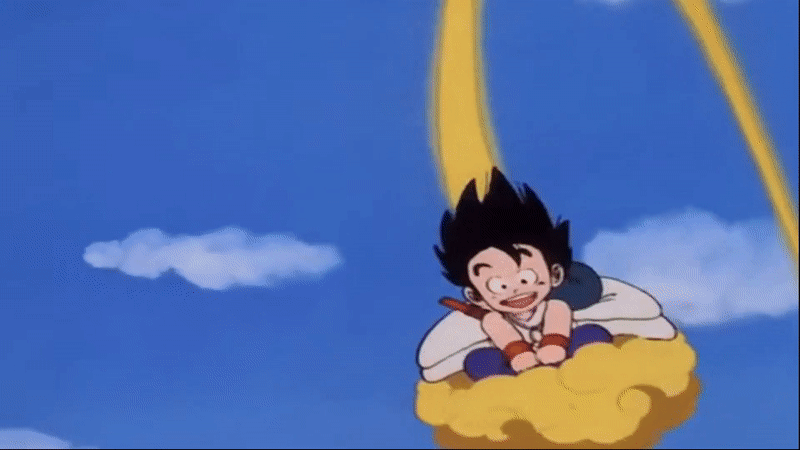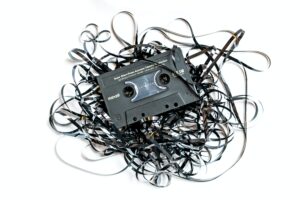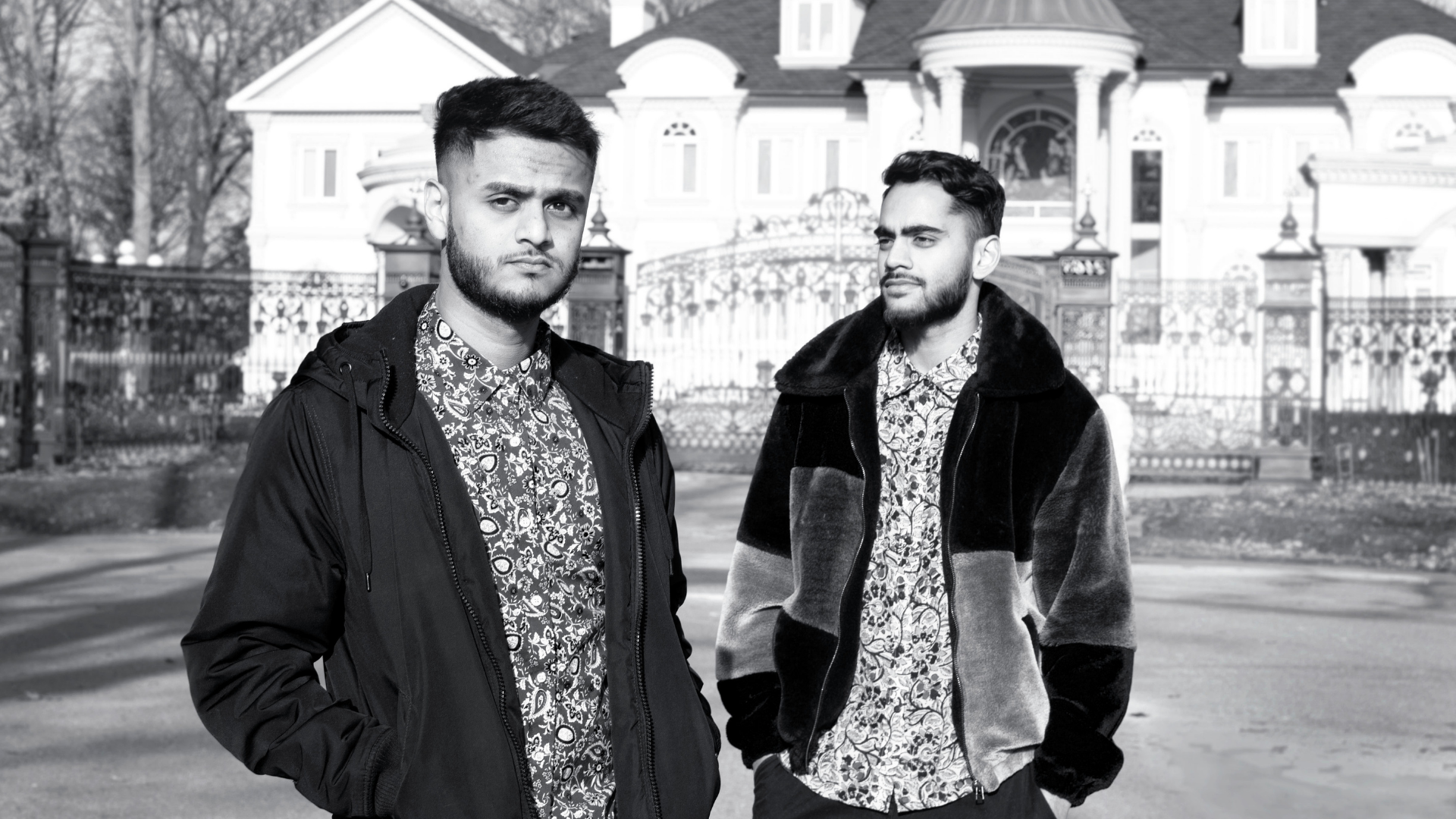 Being comfortable in your own skin is a challenge for many of us. Embracing your quirks – the things that make you stand out – and being open to the unexpected, is something that captures the very essence of Toronto-based hip-hop duo Keralanka. In this interview they talk about embracing their identities, everything going wrong, what defined their childhoods and the catalyst which triggered them to lunge towards their dreams.
Being comfortable in your own skin is a challenge for many of us. Embracing your quirks – the things that make you stand out – and being open to the unexpected, is something that captures the very essence of Toronto-based hip-hop duo Keralanka. In this interview they talk about embracing their identities, everything going wrong, what defined their childhoods and the catalyst which triggered them to lunge towards their dreams.
Keralanka is a hip-hop duo that know plenty about embracing aspects of yourself. While based in Toronto, Canada, the name stems from totally different roots — the name Keralanka is a combination of their places of origin — the Indian State of Kerala and Sri Lanka. Plenty of their content embodies different aspects of their lived experiences, some reflecting their racial identity. While being proud of, and cherishing their racial identity, they’re striving towards representation far away from filling quotas or being tokenized. With the slogan “Corny as fuck, but the music bangs!” they clearly also embrace something most find negative, especially in hip-hop.
Keralanka consists of Rohan (rapper, producer) and djAP (producer, engineer). The very first track they released as a duo was Cold Culture in 2017. However, they’ve known each other since 2012.
Rohan Raj
Rohan was eight years old when he immigrated from India to Canada. He’s dabbled in a lot of things, from rapping during his teens, being involved in online communities, to marketing and entrepreneurial endeavors. While growing up and trying to figure out his identity, hip-hop was something he found especially intriguing. One of his biggest influences as a rapper is Kendrick Lamar.
Apiram “djAP” Kamalakanthan
djAP has a background in DJing. Discovering videos of music producer Ryan Leslie working in the studio sparked AP’s dream of music creation. Since he lacked knowledge in music theory or how to play an instrument, this was an intimidating dream. He started his music career by DJing around 2014, which eventually led to producing. The point where he really started taking producing seriously was in 2016, when he was making a new beat every day. Some of his influences as a producer are Pharrell Williams of The Neptunes, Timbaland, A.R. Rahman, Kanye West, and Diplo.
Q: What’s one of your favorite childhood memories?
AP: It’s not even a specific memory, but just like a collection of events, I’d say. As a child, my dad immigrated here from Sri Lanka. He has four other siblings, who all immigrated here before him. He was the second last one, and then his sister also came. Basically we all live in the same neighborhood. Those are all my uncles and aunts, so I grew up with all my cousins from the day I was born. So a lot of those memories I would say, like going to parks and having picnics in the summer, or just having huge family parties during the winter. Those collections of memories are always gonna stick with me. It’s cool ‘cause a lot of the music I listened to in the earlier days as a kid, a lot of that was inspired by that setting, which I guess is why I would also hold those memories closer to me.
Rohan: Not latching on to a specific memory, but something I think has been pivotal. Because I was an immigrant kid who didn’t really dive into making many friends, initially. In real life, I struggled to make a lot of friends. I sort of resorted to online communities, anime, books and that kind of stuff, you know. Like other universes, fictional universes.
I realize that’s like a core theme of what really defined me as a kid, realizing the power of stories and how stories can really affect you. Even if you are sort of alone and struggling internally, being brought into another world can help you cope with that, and really help expand your perspective. So you know, watching Dragon Ball Z as a kid, Yu-Gi-Oh!, reading Harry Potter … I think I really grew an appreciation for the arts, and overall just authors, writers, musicians, who are able to create a universe to bring you into.
I think that’s such a powerful and dope concept, and I’m only realizing it now, so I thank you for asking that question. I don’t think I’d be as invested into the arts, and making my own music, if I hadn’t had that sort of specific type of childhood or upbringing, focusing in on the fictional side of things. So I’m really grateful for all the artists out there, who helped expand my imagination. Because even as we make our own music, we don’t just make music. You might’ve seen it, but we also have skits and all this other stuff. At our live shows, we have like a storyline of skits in between every 3–4 songs. So really where I think that comes from, is the sort of infatuation of the idea of creating a universe and a world outside of the existing world, which I think is super exciting.
Q: How did the decision to become a full-time artist come about? Being quite the risky move, was it tough?
Rohan: Before I went full-time with Keralanka, in September 2019, I worked in tech for close to four years. I worked at SoundCloud, then a company called Shopify. At Soundcloud, I didn’t know if I wanted to work in the music industry as an artist or on the business side of things. But then, when I got my job offer for Shopify – this was April of 2017, me and AP were just starting to work together at that point – I got the job offer and told AP, “Man, I wanna let you know that I’m eventually going to quit this job to pursue Keralanka full-time.” I told him that before I even started that job, two and a half years before I even quit, and before I even went in full-time. “That’s my intention. I don’t know when I’m gonna do it, but I wanna do that – that’s my intention.”
And so over time, I think it was just a lot of realizations. I always had that in the back of my mind, but I never set some sort of a threshold or a point in which I would do it. I think what changed things was our live-shows. Seeing people come out and support us, seeing the growth in regards of doing like, two shows before I quit, all that kind of stuff. So I was like, “Ok, man. This is at a point where now I have to take a bet on myself, a big bet on myself. Where I need the extra time – I can’t be coming home from work tired, 9 to 5, these kinds of things.” I came to peace with all my fears, I realized fears, all these things … yes, they exist, but you know …
Oh! This is actually what made me make the decision – my mom is a realtor, she’s a real estate agent, and she loves what she does. I told her, “Mom, if you were to die in this moment, right, and had a flashback of your life … You’d probably only have the mind-space to think of like five things, right – what are the five things that come to your mind, that you’re most grateful for before you die?” She said, “Family. I would be thinking about you, I would be thinking of when we brought you here to live a better life in Canada”, and all that stuff. Then she said “Real estate! I would think about real estate, and how I achieved my dreams of becoming a realtor.”, and all that stuff.” I was like, “That’s so dope, that’s so inspiring, mom.” Then I was like, “If I were to die today, I would mention music, mention Keralanka, I would mention family. But I probably would not mention Shopify, or my corporate job.” And so, the thing that I’m spending the most time on, the 9 to 5, is something that I wouldn’t even mention in the last 10 seconds before my death. Then I was like, “That’s not a good way to live – let me sort of live from a perspective of working. I wanna invest time and energy into something that I actually care about.” That’s sort of how I arrived at that decision.
AP: For myself, there’s so many things I wanna do, right. I wanna become a psychologist, be successful in music production and just the music space in general. Wherever this leads me – past production as well, engineering now, and who knows where it will lead me, right? Maybe marketing, who knows.
I was weighing out everything I wanted to do. I was like, “What seems like the riskiest thing to do?” Out of all my goals, this was the riskiest one to me. The reason I looked at it like that – “I’m in my twenties. Compared to the future, this is probably when I’m going to have the least amount of responsibilities. It’s just gonna keep increasing.” I was like, “If I don’t do this now, it’s gonna be even harder, later on.” Sure, I could do it later on … But another part of me went, “If I can do this …” I have this mindset of, “it might not pay off in the short term, but I know it’s gonna pay off in the long term.” I tend to approach all my goals like that. That’s what keeps me going. I’m always looking at it like that – making sure that as long as I’m progressing towards it, and not away from it, I’m on the right path.
For me it was that thought, “Okay. If I can do this now, that just proves to me my process again” [referring to trusting his music making process]. It comes down to me just trusting my process, my intuition, and trusting it to the point where I feel something is right. Where I feel, “I think this is it!” – and I felt that for this. I know that when it gets to that point, where it’s like, “Wow! We’re making millions off of Keralanka”. At that point I’m gonna be like, “Ok wow! I’m very grateful to be here.” But also, at that point, I’m gonna look at my other goals and be like; “If I could do the thing that I thought was the riskiest, scariest thing …” Then I’m gonna look at everything else and be like, “It’s not gonna be a piece of cake, but it’s gonna be easier to not let the fears take over. Cause I’ve done this thing, that I considered the riskiest thing at one point in my life.” Just that thought is kinda what led me down this path. Cause I was like, “If not now, then I don’t think I’m gonna do it later.”
Q: Where do you see yourself at 70 years old?
AP: It’s something I actually think about more than you’d think. I like to visualize myself at that age, looking back on everything I’ve done up until that point. Not just career-wise. The way I’m looking at it is that we’re building a story for ourselves, right. At the older ages, you’re able to look back on things, and appreciate them even more – in depths that you might not have appreciated in the moment, sometimes. I mean, we do that a lot now too; we have certain moments, like in the studio or even just chilling out. It’s like we’ll appreciate something about it a year later or two years later. I kinda look at it that way. There is so much to be done up to that point. At 70, I kind of see myself living a more chilled out life, just enjoying life and enjoying everything I’ve done up ‘til that point. I see myself in a house on the beach.
Rohan: Where specifically, AP?
AP: New Zealand.
Chris: Why New Zealand? Any specific reason?
AP: I’m a very “outdoors person”. I love going outside, being in the sun, biking, walking. I love everything adventure-related outside. So, I’ve been to New Zealand once, and even before that I heard that it was a very “outdoors place”. I went there and was like, “Wow! This place is amazing!” And I loved it, so that’s why.
Rohan: At 70, I’ll be flying from Canada to New Zealand, to visit AP.
I think similarly. It’s hard to say, because I don’t know what I’ll care about even 10 years from now. But I can speak to present moment, and the perception of what I think I would like to be at 70, you know. I say this to AP a lot. We’ll have like very reflective moments, where we’ll look at the things we’ve experienced. We don’t just think of it from a career standpoint. We think about it as we’re building a story of experiences, that are just really dope experiences. That genuinely make us fulfilled and happy as humans.

For an example, I don’t think about it from a perspective of like “career accomplishments”. It’s more so doing the thing that we love the most, has led to so many dope things. Like non-monetary, really dope experiences we’ve been able to experience, that only like X percent of the population will ever get to experience. Even just playing a show and having 250 people pay to see you, and just chant your lyrics. I’m so grateful for that, right. I know I’ll be reflecting on that when I’m 70. I already have memories that I know I’ll be reflecting on forever. But on top of that, even small things, like, I flew out to India. On a whim, just on my Instagram stories I said “Hey, I know we’ve got some fans here, and if anyone wants to do a meet and greet, hit me up”. And I was like, “nobody’s gonna message me”, and then multiple fans were like “Hey, I wanna grab lunch!”. I ended up grabbing lunch with fans, and they were telling me about their high school experiences being affected by our music, and all this stuff. I was like, “Holy shit, man!” Even though it could be considered “small” – that doesn’t matter to me. What matters is how we’re connecting to people and genuinely making connections with our fans. I’m so grateful for that, and I think those are the things that I’ll look back on. Even at 70, be like “I can’t believe that’s a real thing, like that happened, that’s crazy.”
Q: How was your experience growing up in Canada as a “brown kid”?
Rohan: My overall experience growing up was pretty positive, I’d say. I’ve gone to the States, looking at the contrast in regard to like … Toronto vs Philly. In retrospect, I really do appreciate where I grew up: Toronto, Brampton. It’s a suburb right outside of Toronto. I mean, obviously I did have my struggles for sure, but I think overall most people embraced the idea of different cultures. My black friends would try samosas, I would learn about Jamaican food. In general, I think that openness, of sharing cultures, is super dope, and I love Toronto for that. It’s such an awesome spot for not making people conform and for embracing cultures. In that standpoint it’s super positive!
In terms of my “brownness”, there’s a lot of things I’ve realized now in 2020, or in the past couple of years, that I wouldn’t have thought about growing up as a kid, you know. Just internalized racism. I would use an Indian accent to make my white friends laugh, which I still sometimes crack out. But now I realize the context of me talking to my brown friends, who understand the nuance, the culture, and are coming at it from a positive space. That’s very different from me trying to tokenize myself for example. Just to try and get a laugh from people, who aren’t really my friends. Those kinds of things were really hard to identify, growing up. I think it’s things that exist on a deep psychological level, that you then realize and notice as you grow up. But then what’s dope is that generations build on generations, right.
The kids growing up today are probably, because of social media and that kind of stuff, a lot more sort of aware of that kind of stuff, right. For example, when I grew up, every brown kid grew up saying the N-word, including me, being completely transparent about it. That was something that was just like, “Oh yeah, you just say it.” We didn’t understand the nuances of the history of the word. Like you shouldn’t say it if you’re not black. But now I go on TikTok, and twelve-year-old brown kids are like, trying to call out other brown kids in the community for it. Which you have to go about it in a productive way, but my point being that they’re much more aware of their identity, social issues, surrounding and stuff. So I think that’s awesome to see. But yeah, a lot of these things I didn’t necessarily reflect on until I was more of an adult, for sure.
AP: Yeah, same thing here. My experience growing up has been very positive. I was actually thinking the same thing, as a kid I wasn’t aware of any of this. I never thought about my “brownness” as a kid, I was just being a kid, doing whatever kids do. As you grow older, you start to realize the nuances. Also just surrounding myself with people like Rohan, who is a lot more aware of these things than I am, I personally have picked up on so much more, and learned so much more about the nuances that I wasn’t considering.
Rohan: Another thing is that AP and I both grew up in Toronto, Brampton, and Mississauga. Where we’re from has a lot of brown people. Like, growing up with other brown people – our experience might be very different if we grew up in a town with no brown people, right.
Keralanka on representation
One of their many aspirations is to inspire “kids that look like them to do things mainstream culture has told them they can’t”. A fan favorite is the track Kumar. Rohan believes it’s because “it has a very repeatable chorus: ‘All these mofuckas, all these, all these mofuckas!’ Our fans just fucking love that song, because it has a lot of racial identity as a brown kid in the music video.”
When asked to describe their own music, one sentiment became crystal clear: their ambition to have their representation be of a certain nature. This segment is quoted from Keralanka’s appearance on the podcast Industry Herb.
Rohan: If you were to look at just the lyrical content – because I’m writing the music – the content is a lot of my lived experiences around being a brown dude, representation, the immigrant experience. Obviously, there’s shades of trying to take it from “just being” about a brown dude, to also my own personal experiences, and being accepted for that.
Riz Ahmed, a really dope activist, rapper, actor has this really cool essay. Our manager always refers to it, which I think encapsulates what we’re going for in a really cool way. It’s basically the three levels of representation.
As a minority group, when you first start to be represented in mainstream media – when you’re trying to get your voice out there – it’s the most basic surface level version of it. You’re a brown dude, so let’s put him in a convenience store, like stereotypes: Apu, with an Indian accent. A cab driver or a doctor. Just sort of like very surface level representations of who you are.
Then the second level. You can now be yourself – but you’re tokenized. You can now find a regular brown dude, black, gay, queer person or whatever, but they’re the only one of their kind. Basically, tokenized for filling a quota.
The third level is when your minority group is able to get to the standpoint where you let go of all these things. “I’m not being cast because I’m brown to fill a quota, or ‘cause I fit a certain stereotype. I’m being cast because I’m a dope artist, actor, and rapper. I’m being cast because I’m Donald Glover”, for example. They’re casting you solely based on your talents. But unfortunately, you have to knock down pillar 1 and 2. But we’re striving towards that.
Dare Package
With their brand centered around “corniness”, their fan base fittingly goes by the name “the cornballs”. Since the cornballs have the ability to impact certain aspects of the music, often through livestream interactions, the fans relation to the music is quite unusual. Through different media platforms like Twitch, TikTok, an active Discord community, as well as the live-streams, there’s plenty for the cornballs to dive into. What’s evident through the nature of these engagements is an ambition to create a close-knit fan base.
Creating something in front of a live, interactive audience calls for a rather interesting equilibrium. For Keralanka, valuing their own integrity during the creation process is essential, as a too dominant external force could disrupt their original artistic vision.
Having plentiful experience with different live-streaming ventures, it’s not a stretch to say that they know what they’re doing. Primarily these ventures have focused on them creating music in front of their audience. While enjoying the fan interaction during this process, they’ve found a middle ground. An example could be, allowing their audience to vote between a handful of sounds or samples, approved by the duo.
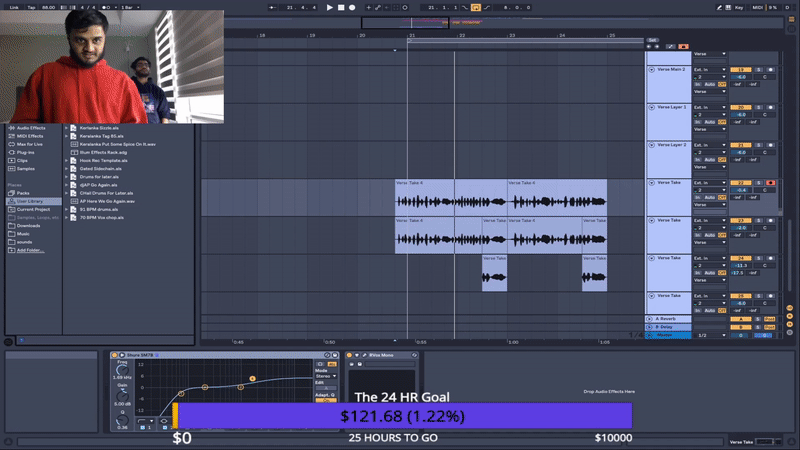
Q: How did the idea of doing a 24-hour livestream come about?
Rohan: We’ve been doing this thing called Cornhub, which is not what it sounds like. It’s ‘cause our brand is ”corny as fuck but the music bangs”. Our fans are ”the cornballs”. We started this IG Live segment called Cornhub, where we make a beat in 15 minutes, with loops our fans send us. It’s a play on words, cause we “beat it up, in front of you in 15 minutes”.
We realized that live-streaming music creation is something our fans enjoy. I think one day, while I was just chilling at home, probably stoned, I thought, “imagine if we just streamed for 24-hours.” I called up Shaiyan, our manager, asking, “what do you think of this idea?”. He went, “Yeah, that’s dope, man. Just sit on it and see if it ages well.”
Then a month or two later, everyone’s at home in quarantine. I’m thinking, “we can’t do any shows, let’s make the best use of our time, ‘cause we can’t put any of our energy into doing or shows. Our gigs got canceled. Let’s focus on this and try it.” We were comfortable enough with the idea of doing it for 24 hours in front of a camera, that we were like, “Ok, let’s just go for it.”
Q: What were some of your favorite moments during the stream, or during the whole process?
Rohan: At the beginning of the Dare Package EP, you’ll hear it starts off with this airplane noise. We’re just sitting there and we’re like, “Man, how is this EP gonna start?”. I described my artistic vision to AP with making it feel a bit more closed in, a bit more anxious, all this stuff. But we didn’t really know how it would sound, necessarily. Then I went out to my living room, took a little hit real quick, and came back. There was this sound that happened outside. I don’t know what it was. I wanna think it was a plane, but I don’t know if it was.
AP: It sounded too close to be a plane, but it sounded like a plane.
Rohan: I told AP, “Stop! Did you hear that?”. He says, “Yeah, I think … just something outside?”. I’m like, “Man, that’s it!” and he goes, “What do you mean?”. ”That’s how we’re starting the EP! Can we make that sound?”. He says, “Yeah, it kind of sounded like a plane.”, then went on and found a sound. ”Oh my god! That sounds exactly like what I just heard outside”.
I don’t know what it is about that sound, but it evoked a certain emotion and feeling. It set the mood and setting in such a way, where it just made sense with what we were going for, you know. That’s how I even started to think of the name Dare Package. If that sound never happened, Dare Package might’ve been a completely different project.
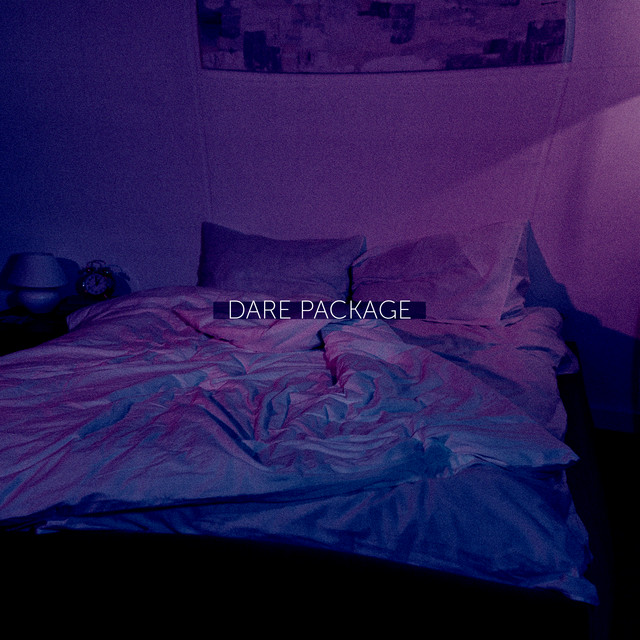
Release date: April 25th, 2020
Runtime: 7 minutes
Streaming Services: Spotify, Apple Music, Deezer Music, SoundCloud, YouTube
AP: Cause literally, that first sound ended up helping dictate the direction, and everything for that EP. Even if the tracks after sound nothing like that sound.
Rohan: Or imagine if I was still in the living room and that sound happened.
AP: It would’ve taken a completely different path. So that was gonna be my favorite moment, but I just thought of something that only hit me this morning. My favorite moment of this whole process was probably how everything started going wrong. Let me explain to you what happened. It was supposed to be a livestream, where I’m at my house and he’s at his, and we’re streaming together. But the software we were using stopped working during the test run that night. It just wasn’t letting us do anything,
Rohan: Yeah, at 3 AM the night before. We were supposed to start at noon, the day off, and supposed to sleep at midnight or something. But there’s a bunch of technical stuff we haven’t figured out, so it’s 3 AM – and it just stops working.
AP: Yeah, we’re like “what do we do…what do we do?”. The only thing we can do is … we have to meet up. We’ve put so much effort into marketing this and everything, that we can’t just not. We need this to happen. We figured that out – we’ll meet up. I come over to Rohan’s house. Before the stream starts, his USB hub stops working. So, we can’t plug in my Push, my hard-drive and his audio interface, ‘cause he only has two usb’s.
“What do we do now?”. We were like, “Ok, we don’t need the Push, we can use the computer keyboard. We can swap things, it’s fine. We’ll adapt.” So then I plug in my hard-drive, and then my hard-drive is not working. The library of sounds I’m used to using …
Rohan: Three years of making music every day, it’s never not worked!
AP: Never happened, never happened. My hard-drive has never failed until that day. Now it’s just dead, so I’m rebuilding it slowly. It all happened that day.
But then the cool thing I was reflecting on it this morning, the cool thing is, all of that chaos was very reflective of this whole time period right now [the COVID-19 pandemic]. It can feel like everything’s going wrong, but you can still just roll with the punches, and figure out how to make the best of it. I think it worked to our advantage, ‘cause it forced us to use different samples, different sounds. It created Dare Package, which I’m very happy with what we’ve created, as a full product, which is dope.
Rohan: Yeah, AP was so bummed out when everything was going wrong. I was just like, “Dude, let’s just embrace everything going wrong and use it to our advantage. Just think about it as another constraint, and that can reflect the EP in itself.”
AP: That’s why it was one of my favorite moments. Looking back on it especially, it’s funny it actually ties back to what I was talking about earlier in the interview. Where later on you look at things at different depths, and you start realizing things you didn’t in the moment.
We wanted the EP to kind of reflect what was going on in the moment. We didn’t want to call it Coronavirus. But we wanted it to reflect the feeling of that anxiousness, of “things are going wrong”. It was cool, because that’s actually what happened in the process, which kind of also made us anxious. Which I think actually helped us add to the feeling, and communicate that to the listener. So, from that perspective, those were … Looking back, those were some of my favorite moments, but not in the moment.
Since this interview
Since this interview, Keralanka have been keeping busy. They started 2021 off with yet another 24 hour livestream, resulting in their second EP: Mahal. Throughout the year they released multiple singles, while continuing to work on their very first album. At the moment they’re aiming to release their debut mixtape during the summer of 2022.
The format of Cornhub was in its earlier stages at the time of this interview. Nowadays, Cornhub is a live-streamed show where Rohan and djAP compete with each other. The task is to create their own respective beat according to three set rules. This time, however, the rules are set by three guest judges.
Curious to give Keralanka a listen? Want to give the whole interview a watch? Just follow the links below:
